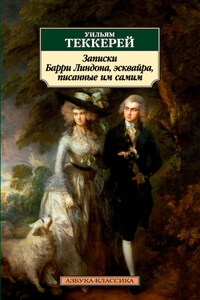I was on my way from San Francisco to Yokohama, when in a very desultory and gradual manner I became acquainted with Mrs. Lecks and Mrs. Aleshine. The steamer, on which I was making a moderately rapid passage toward the land of the legended fan and the lacquered box, carried a fair complement of passengers, most of whom were Americans; and, among these, my attention was attracted from the very first day of the voyage to two middle-aged women who appeared to me very unlike the ordinary traveler or tourist. At first sight they might have been taken for farmers' wives who, for some unusual reason, had determined to make a voyage across the Pacific; but, on closer observation, one would have been more apt to suppose that they belonged to the families of prosperous tradesmen in some little country town, where, besides the arts of rural housewifery, there would be opportunities of becoming acquainted in some degree with the ways and manners of the outside world. They were not of that order of persons who generally take first-class passages on steamships, but the stateroom occupied by Mrs. Lecks and Mrs. Aleshine was one of the best in the vessel; and although they kept very much to themselves, and showed no desire for the company or notice of the other passengers, they evidently considered themselves quite as good as any one else, and with as much right to voyage to any part of the world in any manner or style which pleased them.
Mrs. Lecks was a rather tall woman, large-boned and muscular, and her well-browned countenance gave indications of that conviction of superiority which gradually grows up in the minds of those who for a long time have had absolute control of the destinies of a state, or the multifarious affairs of a country household. Mrs. Aleshine was somewhat younger than her friend, somewhat shorter, and a great deal fatter. She had the same air of reliance upon her individual worth that characterized Mrs. Lecks, but there was a certain geniality about her which indicated that she would have a good deal of forbearance for those who never had had the opportunity or the ability of becoming the thoroughly good housewife which she was herself.
These two worthy dames spent the greater part of their time on deck, where they always sat together in a place at the stern of the vessel which was well sheltered from wind and weather. As they sat thus they were generally employed in knitting, although this occupation did not prevent them from keeping up what seemed to me, as I passed them in my walks about the deck, a continuous conversation. From a question which Mrs. Lecks once asked me about a distant sail, our acquaintance began. There was no one on board for whose society I particularly cared, and as there was something quaint and odd about these countrywomen on the ocean which interested me, I was glad to vary my solitary promenades by an occasional chat with them. They were not at all backward in giving me information about themselves. They were both widows, and Mrs. Aleshine was going out to Japan to visit a son who had a position there in a mercantile house. Mrs. Lecks had no children, and was accompanying her friend because, as she said, she would not allow Mrs. Aleshine to make such a voyage as that by herself, and because, being quite able to do so, she did not know why she should not see the world as well as other people.
These two friends were not educated women. They made frequent mistakes in their grammar, and a good deal of Middle States provincialism showed itself in their pronunciation and expressions. But although they brought many of their rural ideas to sea with them, they possessed a large share of that common sense which is available anywhere, and they frequently made use of it in a manner which was very amusing to me. I think, also, that they found in me a quarry of information concerning nautical matters, foreign countries, and my own affairs, the working of which helped to make us very good ship friends.
Our steamer touched at the Sandwich Islands; and it was a little more than two days after we left Honolulu that, about nine o'clock in the evening, we had the misfortune to come into collision with an eastern-bound vessel. The fault was entirely due to the other ship, the lookout on which, although the night was rather dark and foggy, could easily have seen our lights in time to avoid collision, if he had not been asleep or absent from his post. Be this as it may, this vessel, which appeared to be a small steamer, struck us with great force near our bows, and then, backing, disappeared into the fog, and we never saw or heard of her again. The general opinion was that she was injured very much more than we were, and that she probably sank not very long after the accident; for when the fog cleared away, about an hour afterward, nothing could be seen of her lights.
As it usually happens on occasions of accidents at sea, the damage to our vessel was at first reported to be slight; but it was soon discovered that our injuries were serious and, indeed, disastrous. The hull of our steamer had been badly shattered on the port bow, and the water came in at a most alarming rate. For nearly two hours the crew and many of the passengers worked at the pumps, and everything possible was done to stop the enormous leak; but all labor to save the vessel was found to be utterly unavailing, and a little before midnight the captain announced that it was impossible to keep the steamer afloat, and that we must all take to the boats. The night was now clear, the stars were bright, and, as there was but little wind, the sea was comparatively smooth. With all these advantages, the captain assured us that there was no reason to apprehend danger, and he thought that by noon of the following day we could easily make a small inhabited island, where we could be sheltered and cared for until we should be taken off by some passing vessel.











